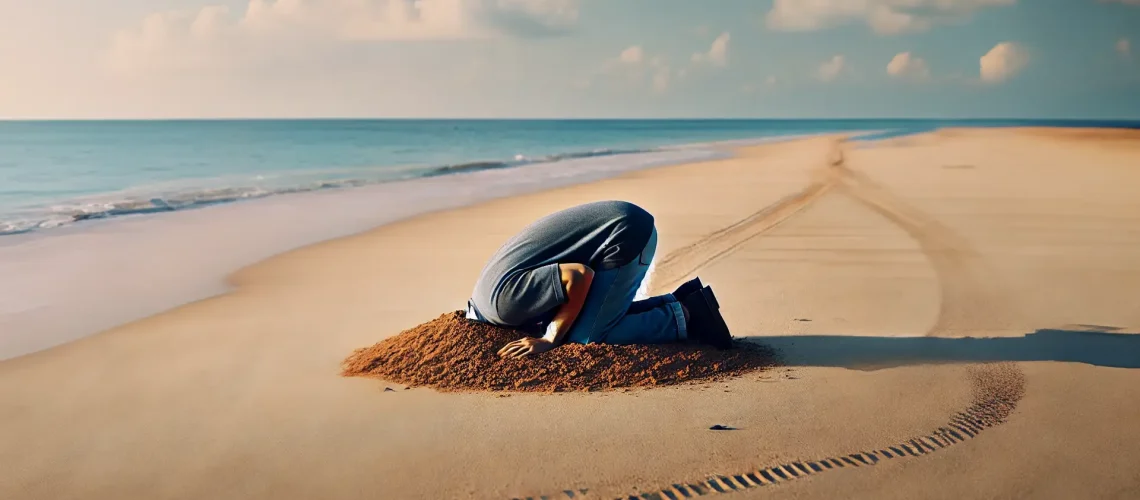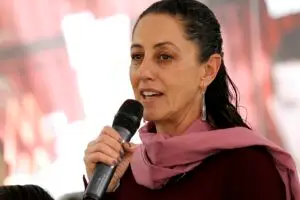We land in Frankfurt. There are just under two days until the start of school. I haul three heavy suitcases and three crates with dogs through customs after a 36-hour journey and rent a car to drive to Munich. It’s pouring rain. Welcome home, I think, as I work my way through the downpour in the darkness towards Munich. We arrive there at 2 a.m. with a delay and sleep at my nephew’s place, since our apartment is still empty.
Two days later, I bring my daughter Charlotte to her new school. She has grown up in Moscow until now and attended a Russian kindergarten and school there before we left the country due to the war and the ongoing propaganda and indoctrination that was now also taking place in my daughter’s Russian school. My Russian ex-wife Liza came with us to Munich and didn’t miss the chance to be there on the first day of school in Germany. She had only ever visited Germany with me before and loves Munich. That’s why we’re here now, because she really wanted to come to Munich, and I’m glad she came along so that my daughter is near me.
Charlotte is starting 3rd grade in Germany. I have always made sure that Charlotte speaks good German but unfortunately neglected writing and reading, as I never dreamed we would have to leave Russia someday. Moscow was our home, and we liked it there. Charlotte’s Russian family lived there. In Munich, we got an apartment in Laim. The district is known for being, let’s say, multicultural. There are also social tensions, especially between the long-established Germans who now have to deal with asylum shelters and refugees from all over the world, but also with yuppies who come with the creeping gentrification of the district.
Charlotte is excited and curious about her new school on the first day. She is now attending the elementary school on Schrobenhausener Street. From the outside, the building looks modern. There is busy activity at the entrance. Charlotte goes inside, and we make our way back. “Oh dear,” I say to Liza. “This is going to cause problems.” “Why?” Liza asks. “Did you see how many foreigners go to this school? I estimate 80% of the students are immigrants.”
Here’s my disclaimer: I’m not a Nazi or right-wing. My friends accuse me of being “far too liberal.” Nevertheless, I realized three days after our arrival that we live in a so-called “hotspot,” and my daughter has to attend a problematic school.
Remember: In Germany, the school district system applies. Your child must attend the school that is in your “district” and can only go to another school in exceptional cases if there are good reasons and the school has space, which is usually not the case. Unless you belong to the privileged class that can afford a private school with tuition fees of 500 to 1,500 euros per month. We arrived in Germany with three suitcases of 32 kilos each, and I’m standing in front of an empty apartment that is not cheap and for which I have to pay three months’ rent as a deposit.
“Why should that be a problem?” Liza asks. “That 80% of the students are foreigners. Charlotte is also, at least half, Russian.” “I think there may be intercultural tensions at the school, but I don’t know for sure,” I answer Liza. She is optimistic; after all, we’re in Germany and not in Russia. That almost sounds sarcastic, but she really means it. Liza only knows Germany from our short trips in the summer on the way to Spain or Italy or just for a few days to spend Christmas with my German family.
The first few days go well at the elementary school on Schrobenhausener Street. Charlotte feels comfortable. The teaching and the system are so much better and freer than the school in Russia she previously attended. Charlotte also makes her first friends, and her new bestie is a girl from Syria who lives with her family in the refugee shelter right next to us. Charlotte loves her new teacher. She is so young and cool.
But after six weeks, Charlotte comes home with bruises. I ask what’s going on, and she tells me about Malek, a boy from Afghanistan who suffers from ADHD and terrorizes the whole class. Malek actively disrupts lessons, insults the teacher, and harasses other children. Now he has set his sights on Charlotte, the new girl. Malek attacked Charlotte during recess and kicked her.
“Why don’t you defend yourself?” I ask Charlotte. “You don’t have to put up with that. Hit back!” I taught my daughter early on to defend herself. She shouldn’t be a victim but a strong woman who can stand up for herself. Charlotte also attended Ju-Jitsu training in Russia for a while, and I taught her the basics from my martial arts experiences from my police days. But Charlotte doesn’t want to fight back. She thinks that as the new girl in the class, she needs to keep a low profile. She also believes she is the favorite student of the class teacher and doesn’t want to disappoint her. In the following weeks, Charlotte keeps coming home with bruises and Malek stories. But she absolutely refuses to stand up to Malek, no matter how much I talk to her.
I am the class parent representative and use a phone call with the class teacher on another matter to address the Malek problem. “Yes,” she says, “I’ve noticed that Malek has it in for Charlotte.” I tell her that Charlotte is coming home with bruises and don’t get the answers I expect, but rather a kind of helplessness and resignation from the young teacher.
“Well,” I add, “I’ve been telling my daughter for weeks that she needs to stand up to Malek and give him a punch (excuse my language), but she doesn’t do it because she thinks she’s one of your favorite students and doesn’t want to disappoint you,” I say to the teacher. She replies that that might not be a bad idea. “If Malek gets some feedback, especially from a girl.” I am surprised, if not disappointed, by this answer and find it a sign of weakness. The school can’t manage to protect my daughter and create a “normal,” calm, and safe environment for teaching.
After that, I talk to Charlotte for two weeks. Of course, I can’t tell her that she now has a free pass from her teacher to beat up Malek, but I encourage her not to tolerate Malek’s violence any longer. But Charlotte doesn’t take action. She is insecure, doesn’t want to mess things up with her classmates and teachers. She suffers and keeps telling how Malek constantly harasses her and attacks her. I suffer with her and decide to contact the parents. Maybe I’ll involve the youth welfare office. In another call with the teacher, I want to discuss this with her, but she tells me that Malek is already being treated by the school psychologist and social worker and that I should stay out of it. “Stay out of it? The boy has been hitting my daughter for weeks!” Where does this violence come from? What’s driving the boy? Maybe there’s domestic violence at home? Questions the school doesn’t want to answer. I should stay out of it.
A few days later, Charlotte grins as I pick her up from school. She tells me how Malek tried to hit her again during recess, and she finally knocked him down with a targeted punch to the nose. Malek is lying on the ground crying. The teachers didn’t see it or deliberately looked away again because there are no consequences for Charlotte, even though Malek’s nose is bleeding. I hear classmates walking behind us talking about Charlotte. “Did you see how Charlotte hit back? Malek was lying on the ground crying. Amazing that someone finally did something about Malek.” Charlotte looks at me and grins. I nod and am proud of my daughter. Violence is, of course, not a solution, but even the state has to apply force when citizens step out of line. I learned that during my time with the Federal Police. Your democratic freedoms end where they become a burden to others in the community and restrict their rights and freedoms.
In the days that follow, I worry. There will be consequences for Charlotte. I expect a reprimand, a call from the school and from Malek’s parents. Also, Malek will surely have thoughts of revenge. The whole class, even the whole school, has seen Charlotte hit him. He can’t let that stand.
I talk to Charlotte on the way to school and try to prepare her for what might come. But nothing happens. Nothing at all. No call from the school, nothing from Malek’s parents, and Malek now keeps a wide berth around Charlotte. Strangely, it stays that way until I meet Charlotte’s teacher months later at the mid-year meeting. She gives Charlotte her grades, and at the end of the conversation, she tells Charlotte that violence is not a solution to problems with classmates, looks at me, and can’t suppress a grin. I’m confused. Somehow proud of my daughter, but somehow it shouldn’t have come to this, and the fact that there were no consequences for Charlotte seems odd to me.
The rest of the school year passes quietly. Malek avoids Charlotte, and if he tries again, a verbal attack is enough to remind him what happens if he doesn’t keep his distance. Until three weeks before the start of the summer holidays. I’m sitting at home working when I get a call from the class teacher around 10:30, asking me to pick up Charlotte from school. There has been an incident, and Charlotte is complaining of pain. I should take her to the doctor and have her examined. Oh dear, now Malek’s late revenge has come, I think as I hurry to the school.
At the entrance, two friends bring out Charlotte. She is limping, has torn pants, and is holding her ribs in pain. “What happened?” I ask. “Did Malek hit you?” But it was much worse. During recess, there was an argument on the schoolyard over a bag of “Takis.” The typical squabble between a group of girls and boys. But somehow the dispute escalates, and in the end, a group of boys, also from the 3rd grade, aged 9-10, go after Charlotte. Four boys hit her, pull her hair, and when she is crying on the ground, two of the boys kick her in the ribs. A fifth stands by and shouts at my daughter. Finally, Charlotte’s Syrian friend comes to her aid and is then also beaten. Malek was not involved this time.
We go home, and I examine Charlotte. She has some bloody scratches and bruises. Her ribs hurt. “Should I take you to the hospital?” I ask. But my daughter silently shakes her head. I talk to her and try to get as many details as possible. What was the trigger? Who was involved? Who were the two boys who didn’t stop and kept kicking? Where was the recess supervision? How did the class teacher react? I call the teacher to hear her version of the story, but she hasn’t seen anything and downplays the incident. The colleagues also saw nothing. The recess supervision was busy with another conflict.
Then I call the Syrian friend to hear her version. It is almost identical to Charlotte’s statements.
After that, I make a post in the class chat: Who are the parents of Alex, Mohammed, Gabriel, Luca, and Ali? The father of Alex gets in touch. I am surprised when I have an Iraqi Arab on the phone (with that name), who is understanding and tells me he will talk to his son and reprimand him. With Mohammed, an Iraqi Kurd, the matter looks different. His caregiver from the refugee shelter contacts me—a German woman with a doctorate. She downplays the incident, tells me I shouldn’t get involved, and that there are already enough tensions in the shelter, especially between Syrian Arabs and Kurds. That there was already a problem with the father of Charlotte’s Syrian friend and the Kurds, and that we shouldn’t pour more gasoline on the fire.
“Not get involved?” I ask her. “This is about my daughter, who was beaten by four boys and was kicked while she was crying on the ground.” Diplomatically but firmly, she lets me know that I should keep quiet. I shake my head in disbelief.
Via WhatsApp, I write to the father of Charlotte’s Syrian friend. I use AI to translate everything into Arabic so he can understand me since his German is very poor. I tell him about the incident and that his daughter was also beaten. Two of the children from the refugee shelter were involved. One actively, the other stood by. I ask him to talk to the parents and the children and conclude by saying that he knows what he has to do. He knows the culture better than I do.
After that, I get a callback from the father of Alex, the Iraqi Arab. He had spoken to his son, who confirmed the incident but said he was not involved and had only watched. Really? And you believe him? My daughter says he was actively involved! “No, my son wouldn’t do something like that. He is well-behaved, and besides, we want to adapt in Germany and make sure that something like this can’t happen.”
But it did happen. “Your son punched my daughter in the face and pulled her hair.” “No, your daughter must have seen or experienced that wrong. My son wouldn’t do something like that.” I hang up the phone and shake my head again.
Then I have another phone call with the class teacher. How should we proceed now? I think my daughter is now afraid to go to school. What will happen to the perpetrators? How will they be disciplined? Will their parents be informed? I’m fobbed off with vague answers and understand between the lines once again that I shouldn’t interfere in internal school matters. “But it’s about my daughter, who was attacked by five boys and beaten and kicked by four.” “The school will handle it. I shouldn’t worry. Charlotte should stay at home for a few days and then come back to school when she’s ready. Then the matter will be taken over by the school social worker and discussed with all involved.”
This is not enough for me, and I find the behavior of the class teacher and the school management not appropriate. Somehow I expected more, and at the moment, it seems to me that they want to file the matter away as quickly as possible. It’s not that bad, and I shouldn’t make a mountain out of a molehill.
I am also reminded in conversations that I, as a father, might be overreacting and should calm down. “Excuse me? A girl is beaten by four boys on the schoolyard, lying on the ground crying, and then kicked in the ribs and head for a while? Is that your reality? I should keep a low profile?”
I won’t have it. And not (only) because it’s about my daughter, but because it can’t go on like this. What happens next under recess supervision? A child stabs another with a knife? I have no idea if the school has already resigned, is too lazy, or simply incapable of dealing with the matter properly, but my frustration level is steadily increasing.
The next morning, Charlotte complains of severe pain in the kidney area and when urinating. There’s no choice but to go to the doctor. When we enter the room, I apologize for taking up his time with such a matter, but with such pain, we have to check it out. Our pediatrician from the neighborhood is more than understanding. He talks to Charlotte and builds her up again, gives her and me support and confirmation. He advises me to contact the parents and the children directly. He knows the school, and it’s not the first incident there. I should threaten the parents and the school with the police.
“But the kids are under 14 and not criminally liable,” I counter. “Still,” he advises me. “Tell them that next time you will involve the police and file charges.”
The good news is that Charlotte doesn’t have a fracture, and the kidneys are apparently only bruised, and there will be no lasting damage. I still have everything documented. Who knows what I might need the proof for later.
Back home, I talk to various school principals and teachers and get advice on how to proceed. I have been working in marketing for two German schools abroad for years and therefore have many teachers and school social workers in my network.
Then I write a firm but factual email to the school management and the higher school authority, describing the incident and asking some questions. Questions I had already asked the class teacher and received no answers to. Have the parents of the perpetrators been informed? What disciplinary consequences will there be for the children? Where was the recess supervision? How are such incidents generally handled at the school? What will be done in terms of prevention? These and other questions. My text is factual and firm. I try to keep emotions out. Of course, my primary concern is that the perpetrators are punished and my daughter sees that their actions have consequences. I am also concerned about my daughter’s further safety at school. But it’s also generally about the issue of violence at the school. At this “colorful” multicultural school. Where does the violence come from? How can it be combated and prevented so that other children don’t suffer like my daughter or worse?
To get ahead of it: I receive a vague response from the school authority six weeks later at the end of the holidays, pointing out that I shouldn’t pursue the matter further because the responsible supervisor (she wrote the email) has been promoted, and there is no successor yet who can handle the matter. I’ve said it before, but “Really?” My questions are addressed superficially at best. Mostly they are not answered at all. And of course, the standard phrase comes up again, which I already know: The school and the school authority have it under control. “We are working on it with the school social work, and I shouldn’t interfere.” Hmm…
I decide to take matters into my own hands. I either can’t reach the parents, or they don’t give me satisfactory answers. So I have to talk to the children. Charlotte tells me that all those involved, including her, were invited to a meeting with the school management and received a reprimand. Charlotte almost got a reprimand because she supposedly provoked. In the end, they decided against it, but she was verbally warned. With that, the matter is closed for the school, says the class teacher in conversation. The school social worker will take care of the matter if he finds the time, and besides, the holidays start in two weeks. I shrug my shoulders and wonder at this moment if I’m perhaps overreacting. Somehow all the other parties involved are lethargic and not really motivated to work through the matter to prevent such incidents in the future. The parents bury their heads in the sand and don’t believe their children are capable of such things. Maybe Charlotte really provoked. Maybe she exaggerated in her accounts? It’s good to take a deep breath and reflect.
No! Charlotte did not exaggerate. Her friends confirm the incident exactly as Charlotte described it. And yes, she provoked. My daughter can speak up and assert herself. The boys didn’t like that, and when they ran out of words, they started hitting. With a rage unparalleled. They punched, pulled hair, kicked, and when the little one was helpless on the ground, two of them continued to kick her head and ribs. For a long time, not just briefly. The rib and kidney bruises as well as the scratches and bruises didn’t come from nowhere. Five boys against one girl. Four of them used violence, the fifth was only verbally involved. The others looked away. Just like the recess supervision.
After a visit, when I bring Charlotte’s Syrian friend back to her shelter, Charlotte points out two of the boys who were involved: Mohammed, the Kurd, and Ali, a Syrian Arab who only participated verbally. I boil inside with anger but pull myself together and speak to the two calmly. Both say they weren’t involved at all. Charlotte stands next to me. When I don’t give in, they say they stood by and watched. That Charlotte had provoked. In the refugee shelter, windows open, and men step onto the external stairs to see what’s going on. “What’s the German doing with our children?”
I continue to speak calmly. I ask the two boys if it’s normal in their culture not to respect women. To hit them. The boys become quiet and shrug their shoulders. I tell Mohammed, the Kurd, that I know the status of women in their culture and that women, especially in the YPG, play a strong and courageous role in the fight against ISIS. Is this his way of showing respect by hitting a girl? And even if you didn’t participate and really just stood by and watched, which is not true, you’re still in the wrong. Whether it’s about a girl or a boy. If five boys, or even just three, gang up on someone, beat them to the ground, and the victim is lying on the ground and is being violently kicked, you step in, don’t you? You end it and pull the perpetrators out of their orgy of violence. You get help. Especially if the victim is a girl. What kind of man are you if you just stand by and watch? Or worse, participate? What about your honor then? What kind of man are you?
The children look at me with wide eyes. Before I turn and leave, I make them promise to change. To become men of honor and behave accordingly in the future. The two promise me that. As we go home, Charlotte quietly takes my hand and grins a little.
I can’t reach the other two boys who participated and kicked Charlotte at the end. I write SMS and WhatsApp messages to their mothers and only get a response from one after days, after I threaten to go to the police. Her son is well-behaved and wouldn’t do such a thing. She had talked to him; Charlotte had provoked and is lying. I ask her if I should send her the doctor’s report. That the injuries didn’t come from nowhere and that several children confirmed that her son was involved and even kicked at the end. The family is from the former Yugoslavia. I can’t determine which area they are from or how long they’ve been in Germany. Their German is quite good, though. The other attacker and leader of the group is also from the same area. I ask the mother if it’s normal in their culture to hit women and to kick them in the ribs when the girl is lying on the ground crying and already curled up in pain, holding her arms protectively in front of her. There’s no answer, and the mother remains silent. I write to her to keep her son away from my daughter and that in the future, even with other incidents involving her son, I will immediately involve the police and youth welfare office. I receive no further response.
A week later, Charlotte brings home a reprimand from school. Malek, the Afghan who wasn’t involved this time, had heard about the fight and thought he could try again with Charlotte and suppress her, now that she’d been softened up by the other boys. But Charlotte’s fist landed once again on Malek’s nose, and he was lying on the ground crying. This time, the recess supervision watched, and Charlotte was punished. Now the school management is trying to portray Charlotte as violent and provocative. They are trying to make her responsible for what happened. Sure, she bears some blame, but I repeat myself: five boys against one girl, with kicks when she’s lying on the ground crying. That’s unacceptable.
I sign the reprimand and note in writing that I’m glad my daughter is not a victim. That she stood up and continues to defend herself against attacks. I’m proud of my daughter! Best regards, Chris Helmbrecht.
A day later, we’re at the pediatrician again for a follow-up examination and a vaccination. As we leave the treatment room, Charlotte tells me that Luca is sitting in the waiting room with his mother. She had already told me that he was the leader of the group and hit particularly hard. That he was the one who kept kicking her until the end and then went after her friend when she tried to help. I approach the mother. I try once again to come across calmly and factually, although I’m agitated inside. The mother is in her early thirties. She wears clothes from expensive fashion labels. Her son sits meekly next to her in a Ralph Lauren polo shirt. She is the only one from whom I haven’t heard anything yet. No response to my messages.
I ask why she didn’t respond. Now she looks at me. I see the anger rising in her, and she wants to defend her son, but she says she’s hearing all this for the first time and knows nothing about it. Then her son defends himself. Charlotte is lying; everything happened differently, and she provoked and is to blame for everything. I ask the mother to talk to her son and ensure that this doesn’t happen again. I ask her to check her son’s media consumption. This kind of raw violence must come from somewhere. She remains silent. I turn around and walk away.
When I’m almost at the door, she explodes. She yells at me. Charlotte is to blame, provoked, and her son wouldn’t do something like that anyway. Charlotte is lying. Sounds familiar. Heard that before. I turn around, walk towards the woman, and look deeply into her eyes. Then I ask her in a calm voice: “Is it normal in your culture for men to hit women? To kick women in the ribs when they’re lying on the ground? Is that normal for you? Does your husband hit you too? Where did your son get this from? Where does this violence come from?” He sits next to her, intimidated. She searches for words but somehow has nothing to counter. I turn around, take Charlotte by the hand, and leave.
The email from the school authority at the end of the holidays was the official conclusion of the matter for the school. I have told all involved my opinion but have to wonder if it got through. Should I write an article about it and continue the whole thing in public? In the transfer year, the class needs peace, and I don’t want to fall further out of favor. I accuse the school management and the class teacher of not doing enough. If I publicly accuse them now, it might have negative consequences for my daughter. In conversations, I realize that my daughter has processed the matter relatively well, and the injuries have long since healed by the time the new school year begins. So I decide to keep quiet. Not to make a fuss, but to process the whole thing sometime in an article like this one. It’s not about revenge or my feelings. Not anymore about protecting my daughter. Honestly, it’s primarily about showing the poor condition of the elementary school on Schrobenhauser Street. I wonder how there can always be outbreaks of violence at this school. It’s about the community in the Laim district, but also about how the state, the city of Munich, addresses the problem. It’s about prevention. Charlotte’s case is not the only one, and I fear that in the near future, worse will happen at this school if we don’t talk openly about it.
In the new school year, I am confirmed as the class parent representative, although now four parents (the fifth perpetrator was in the parallel class) surely have a problem with me. The class teacher is visibly not pleased that she has to deal with me for another year. A week after the election, there is a video conference of the class parent representatives, the parent council, and the school management, in which I participate. The program states that the school management will present its new program on “violence prevention” and that there will be a question-and-answer session at the end.
I think it’s good that they have finally accepted that there is a violence problem at the elementary school on Schrobenhausener Street. After an hour of chatter, the school management finally presents its new prevention program, and I’m curious. But time is running out, and they can only explain the whole thing quickly and superficially. The school management—and hold on now—is working with an “educational artist” on a solution. He suggests building a “bridge of encounter” with the children in the schoolyard next year, over which the conflicting parties have to walk together. Of course, the whole thing costs something. Materials and the artist have to be paid. They hope for financial support from the parents. Really?! I’m shocked.
The bridge was actually built at the end of the 4th grade, and I was forced to pay 5 euros for it. In the question-and-answer session, no one speaks up except me, and I am told to keep it short because we’re running out of time. I ask what the reason for the outbreaks of violence at the school might be. The school management replies that there are problems throughout Bavaria and that this is not a specific problem of the elementary school on Schrobenhausener Street. Especially after COVID, the children are irritable, and even two years later, there is violence in Bavarian schools because of it. And again… Really?
You know the emoji with the hands up? This one 🤷♂️. I think that describes quite well how I feel now. Then the school management quickly says goodbye from the video conference before more uncomfortable questions come.
I have thought about where the problem lies. There are, of course, several causes, and I try to address them in the following and now concluding paragraphs. The school management, the school authority, and readers from the Ministry of Education can feel free to tune out here and stick their heads back in the sand. Where it was before. My opinion doesn’t seem to interest anyone there anyway.
Laim is a colorful neighborhood, and I don’t mean the rainbow, but the diverse cultures and social strata that meet here. There are certainly “worse” districts in Munich, but the situation at my daughter’s elementary school reflects how it looks in our district and how we deal with each other. It needs people who take care of solutions. It needs financial resources to implement good solutions and not build bridges of encounter again, thereby supporting a needy artist. It needs awareness that there is a problem. Politicians and officials who take care of it. At the same time, it needs us, the parents and fellow citizens, who get involved and participate. Only then will it become quieter at this school, in this district, and in the many other “hotspots” of our city, the Free State, and the Republic.
The causes are multifaceted. As I said, I have thought about it, and here is my personal analysis on this topic. I’m sure that psychologists and social workers with experience can name other causes and better solutions if you can find, employ, and pay these people. Many of the immigrants in our district are refugees. They have fled some brutal war in the world to come here. They and their families carry the traumas of war with them and bring them to Germany. Malek comes from Afghanistan. Who knows what he and his family have experienced and seen. The two main perpetrators are from Yugoslavia, and their parents came to Munich over 20 years ago fleeing their cruel war. These war traumas remain for generations if they are not treated. Well, and the three children from Iraq and Syria who were also involved have certainly seen and experienced a lot. Added to this is that starting anew with nothing—believe me, I know what I’m talking about—in a new country is not easy and brings a lot of existential worries and stress. Living together with different cultures and religions in a refugee shelter in a confined space does the rest. Then there’s the excessive media consumption, which is already a problem for German children. We parents don’t have the time and energy to check what our children are consuming for hours and with whom they are communicating on the internet. And then there’s the language. If I can’t articulate myself properly to my counterpart and make myself understood, I eventually reach my limit. The frustration eats me up, and then fists fly instead of words.
Charlotte didn’t manage to transfer to a higher school. After two years in Germany, I still can’t afford a private school. So she goes to the middle school next door, also on Schrobenhausener Street. They pride themselves on “diversity is our strength.” Here, too, the proportion of foreigners is very high. A friend, whose daughter has been going to this school for a year, said, however, that the principal is very strict and has the school under better control than is the case at the elementary school next door. Malek is also at this school but thankfully in another class. The Arab and the Kurd from the refugee shelter are now friendly and even protect Charlotte respectfully and caringly. My words seem to have fallen on fertile ground with them. I haven’t heard anything more from the other three accomplices. Malek tried again in the new school year and at the new school to suppress Charlotte with violence. She responded yesterday with a kick and was promptly warned by a teacher and told that violence is not an answer to violence. At least the teacher paid attention.
But if someone hits you on the left cheek, offering them the right one as well is certainly not the right answer in Malek’s case. Was a transfer protocol or conversation made during the transition between the elementary school and the middle school, or do the teachers there have to start all over again?
I advised Charlotte to knock Malek down with a targeted punch to the nose and promised her that I would take care of the school consequences afterward. Of course, that’s not a solution, but my daughter is not a victim and will not become one. In that sense, see you soon. There will certainly be more to report.
Your Chris Helmbrecht.






